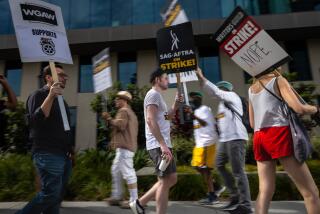Labor Problems Nag Economically Robust Asia
- Share via
TOKYO — Asia’s economically robust countries are experiencing labor pains.
Recent rapid economic growth has led to labor shortages in Japan, Singapore and Hong Kong, and helped spark worker unrest in South Korea. Taiwan and Thailand have been plagued by both problems.
“In Korea and Taiwan, workers are demanding to participate in the economic prosperity which is enjoyed by their industries,” said Toshio Yamasaki, a Bank of Tokyo economist.
The labor troubles also have raised doubts about the ability of some of the countries to maintain their recent stellar economic performance.
Economists said company managers will be forced to pay more to placate angry workers and that will put a crimp in their ability to compete on world markets.
“The international competitiveness of some of the countries will be reduced,” Yamasaki said.
That should be good news for the United States, which is groaning under the weight of a big trade deficit, partly the result of a flood of exports from Asia.
South Korean analysts said the government recognizes that the wave of labor disputes could hurt its economy, but it has avoided getting involved under the more democratic regime ushered in with presidential elections last year.
“The source of labor unrest is the people’s consciousness of democratic development,” said Kim Sung-joong, a deputy director at South Korea’s Labor Ministry. “Secondly, there is the issue of fair distribution of wealth.”
The rash of labor disputes is considerably scaled down from last year--an average of 5.6 disputes a day in the first five months of this year compared to 19.7 a day in the second half of 1987--but shows a strong desire for permanent change.
Some government policy-makers expect wages to go up by 20% or so this year on top of a similar increase last year as companies seek to cope with the new labor militancy.
Strikes are also on the increase in Taiwan after the island nation lifted martial law last year.
“Under martial law, if you spoke against the management you were considered a traitor,” said Kang Yi-yu, chairman of the Chinese Petroleum Union.
Government officials worry that foreign investors could be scared away by the growing labor unrest. In the first half of 1988, foreign investment in Taiwan dropped 40% from year-ago levels.
More to Read
Sign up for Essential California
The most important California stories and recommendations in your inbox every morning.
You may occasionally receive promotional content from the Los Angeles Times.













